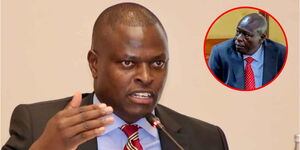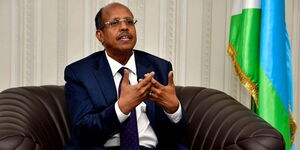US Senator and the chairman of the Senate Foreign Relations Committee Jim Risch has raised concerns over Kenya’s growing ties with China, calling for a reassessment of the relationship between Kenya and the US.
Responding to President William Ruto's recent visit to Beijing, Senator Risch warned that Kenya’s deepening partnership with China signals more than just an economic partnership and could indicate a shift in global allegiances.
Speaking during a Senate hearing on East Africa and the Horn of Africa on Tuesday, May 13, Risch pointed to Ruto’s remarks where he declared that Kenya and China are “co-architects of a new world order”.
According to the Senator, such comments reflect a high level of alignment with China that should prompt the US to reconsider its engagement with Kenya.
“Just last month, President Ruto declared that Kenya, a major non-NATO ally, and China are co-architects of a new world order.” That’s not just alignment to China; it’s allegiance,” the statement read in part.
“I submit for the record the text of that speech. Relying on leaders who embrace Beijing so openly is an error. It’s time to reassess our relationship with Kenya and others who forge tight bonds with China," the statement continued.
Ruto visited China in April, a visit that resulted in a series of trade and investment agreements and deals in agriculture, technology, and green energy, with China pledging to fast-track their implementation.
Further, the senator warned the US to be more strategic about how it engages with African leaders, warning against investing in individuals but rather investing in strengthening institutions, expanding private sector ties, and empowering the youth.
“We must stop building US policy in Africa around individual leaders and instead focus on strengthening institutions, expanding private sector ties, and empowering the region’s young and dynamic populations," the senator continued.
The Senator encouraged deals that promote long-term stability and progressiveness rather than short-term agreements with individual leaders who may not always align with US interests.
He revealed that engagements between America and African regions must be part of a broad strategic effort to protect American interests in Africa while also protecting the US taxpayer’s pocketbook.
“That means being clear-eyed about our potential and existing partners in the region. In many cases, these governments are not wholly legitimate, which raises the question of whether engagement is worth the cost.''












